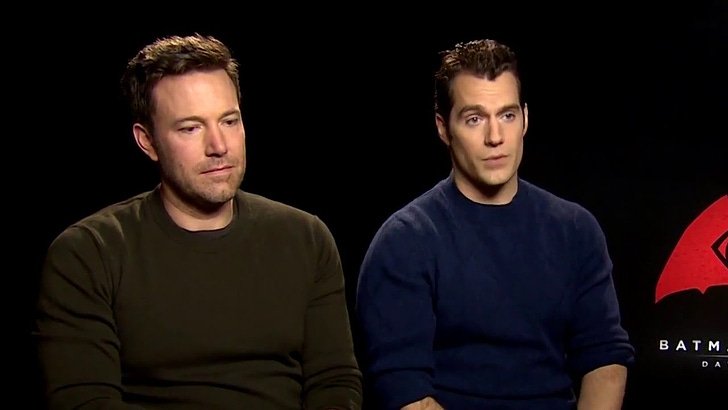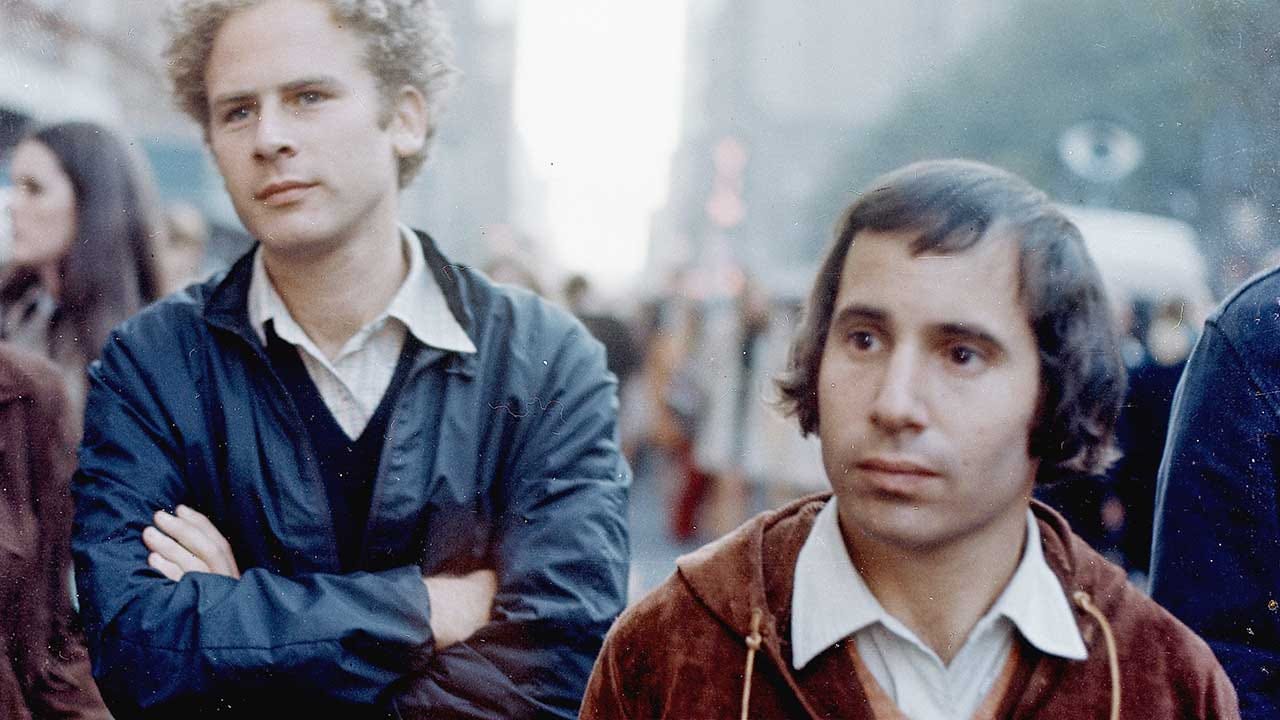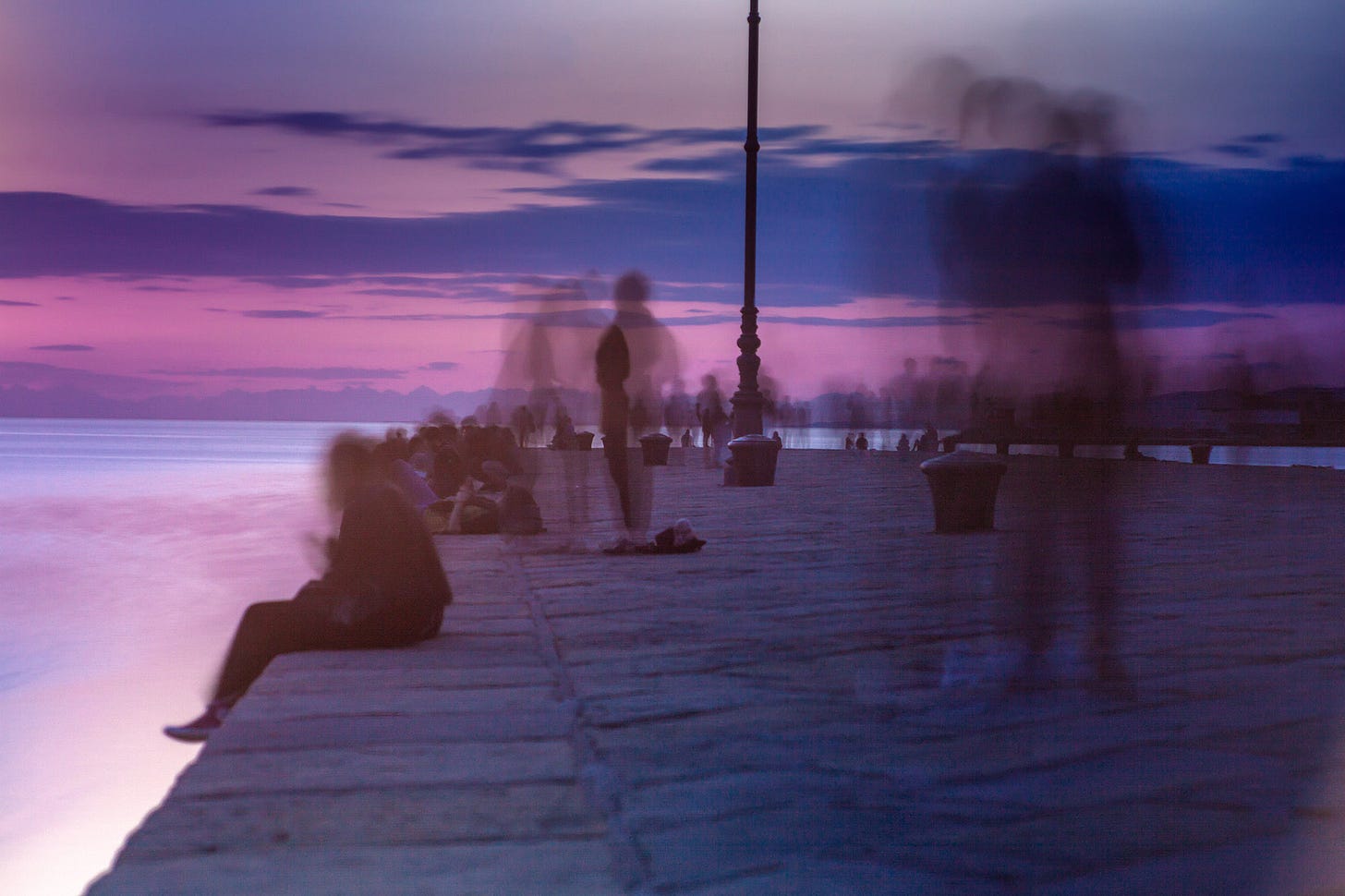In 1964, a young songwriter named Paul Simon penned an introspective little ditty called “The Sound of Silence.” After an inauspicious debut, the song was featured prominently in the popular movie The Graduate, and became a hit. Today, it is often used as a humorous soundtrack for footage of celebrities looking sad.
Paul Simon has described the song as simply being about “the inability of people to communicate with each other … so what you see around you are people unable to love each other.” But a closer reading of the lyrics reveals much more: a powerful critique of our disconnected and dysfunctional society.
Hello darkness, my old friend
I've come to talk with you again
Because a vision softly creeping
Left its seeds while I was sleeping
And the vision that was planted in my brain
Still remains
Within the sound of silence
The song begins with Simon describing a moment of shadowy solitude. This probably refers to his penchant for playing guitar in the bathroom with the lights turned off (both for the concentration it facilitated, and for the pleasant echo effect provided by the tiled walls), but more broadly it applies to the way that disquieting thoughts often come to us unbidden at times when we are not distracted by the clamor of the day.
In restless dreams, I walked alone
Narrow streets of cobblestone
'Neath the halo of a street lamp
I turned my collar to the cold and damp
When my eyes were stabbed by the flash of a neon light
That split the night
And touched the sound of silence
In the next verse, Simon continues his reverie, and describes the sense of isolation - unique to industrialized society - that comes from feeling alone in a crowd of people. Artificial light, the archetypal symbol of technological progress, is mentioned twice here: first, the soft “halo” of a street lamp, and then the painful “flash of a neon light.” When one is in darkness (literally or figuratively), some forms of illumination can be a comfort, and others can be an intrusion. It is slightly ironic that, compared to today’s garish LED billboards, the harsh neon signs of Simon’s youth seem quaint and cozy.
And in the naked light, I saw
Ten thousand people, maybe more
People talking without speaking
People hearing without listening
People writing songs that voices never shared
And no one dared
Disturb the sound of silence
The third and central verse is the heart of the song. Here we find Simon’s plaintive description of mobs packed together, each member of the herd oblivious to the humanity of the others and unable to communicate their own thoughts or feelings effectively. Simon probably wrote this in response to the roar of the impersonal throngs of the Big Apple, but it applies even more to the all-consuming cacophony of our online existence. “People talking without speaking, people hearing without listening” is an excellent description of the internet in general, and of social media in particular.
It’s worth noting that, although he shares his name with two Christian saints, Paul Simon is Jewish, and “The Sound of Silence” is infused with Jewishness. This verse brings to mind the Biblical story of the Tower of Babel: a symbol of progress that resulted in humanity losing its common language. Once people could no longer speak with each other, they could only “babble” instead of sharing understanding. In a nutshell, that is the sound of silence: din without meaning.
"Fools" said I, "You do not know
Silence like a cancer grows
Hear my words that I might teach you
Take my arms that I might reach you"
But my words, like silent raindrops fell
And echoed in the wells of silence
In the fourth stanza, Simon echoes the frustration of anyone who has tried to share a meaningful insight or to reach out for human connection, only to be drowned out by the tumult of contemporary life. We are so busy, and our energy is diverted into so many other things, that there’s often no space for love and wisdom.
Interestingly, this is the only verse that does not end with the words “sound of silence.” Simon may have been thinking of the cavernous spaces between skyscrapers, but “wells of silence” is an excellent metaphor for the rabbit holes of the internet where anything valuable vanishes unnoticed.
And the people bowed and prayed
To the neon god they made
And the sign flashed out its warning
In the words that it was forming
Then the sign said, "The words on the prophets are written on the subway walls
In tenement halls"
And whispered in the sound of silence
The fifth and final verse is a scathing indictment of modern culture. The phrase, “the people bowed and prayed / to the neon god they made” directly echoes the Biblical story of the Golden Calf, the idol that the Israelites made while Moses was on Mt. Sinai receiving the Ten Commandments. In Judaism, idolatry is a particularly grievous sin, and Simon is neither the first nor the last Jewish thinker to observe that our attention, devotion, and sacrifices are often directed at false gods of our own manufacture.
The song concludes with the message that, in a world deafened by meaningless noise, the still, small voice of truth is often reduced to an inaudible whisper, hidden in obscure and overlooked places. As with the other observations Simon makes in the song, this one rings even more true now than it did sixty years ago.
In 1964, the neon gods were newly-born. Today, they are in the fullness of their power. The sound of silence is no longer the hubbub of strange voices, but the roar of the information superhighway. It connects us superficially, but isolates us deeply. We venture forth, seeking connection, only to be seduced by false gods that, to borrow a term from Shakespeare, are full of sound and fury signifying nothing.
With an artist’s sensitivity, Simon saw and foretold this tragedy. Barely out of his teens, he captured the essence of our modern Tower of Babel in melody and lyrics that has resonated with three generations. It is no small victory that, even when its earnest mournfulness is played for comic effect, his vision and his words still remain, within the sound of silence.










Beautifully thought out and articulated. Thank you for this insightful reflection.
This song, both its original rendering and its more recent by the band Disturbed have been on my mind a lot lately. I have bothered versions on my “Covid” playlist. The false gods and idols are taught to us Christians too, or at least some of us….at least used to be. Now, who knows?
I interpret it slightly differently than you do here. Perhaps it is more accurate to say that I use it more as a tool with multiple functions. Through, to be honest, I blend those, or try to, into one task. I see it as alluding to everyone one their idiot phones; talking without speaking, hearing without listing. Songs that voices never shared, no one daring disturb the sound of silence.
The 4th verse, in apply to the silence of those who knew that what we were forced to do to counter covid would not work. One of the staff and factually members at the medical vocational school I teach at is an infectious disease control expert. Yet, he wears a mask, spent most of his days at school during the panic spraying and whipping down the surfaces of empty class rooms. When ai asked why he of all people was doing this, he answered that it was political and that all in his filed know that none of what we were told to do had any hope of working. But, to say anything would invite retaliation, so they stayed quiet. “Fools” said I, “You do not know Silence like a cancer grows”.
I have been attempting to inform one and all that masking will not help and will in fact, make it worse. Ignored and complaints filed against me. “Hear my words that I might teach you”. But my words, like silent rain droops fell and echoed in the wells of silence”.
“And the people bowed and prayed”. Do not people when they walk, stand and or sit staring at the neon God they made, their idiot phone, appear to be bowing their heads in solemn prayer?
I know that he could bot possibly have had our reality in mind in this level of detail, but in my mind, it fits so nicely that it borders on prophecy.
However we individually interpret it, the song aged remarkably well, every bit as relevant today as it was all those years ago, and as you state, possibly even more so.
Excellent, thought provoking piece, thank you.